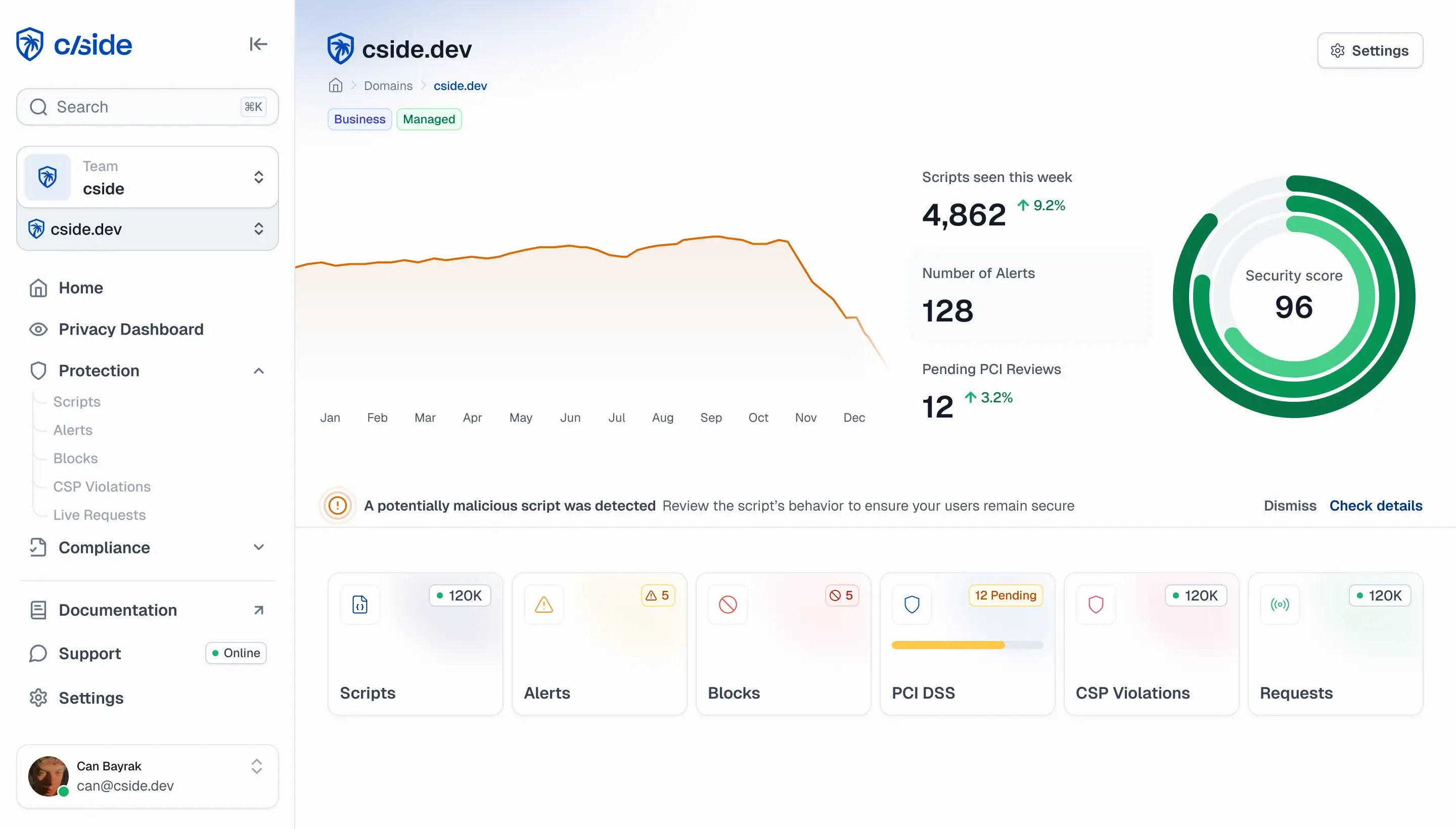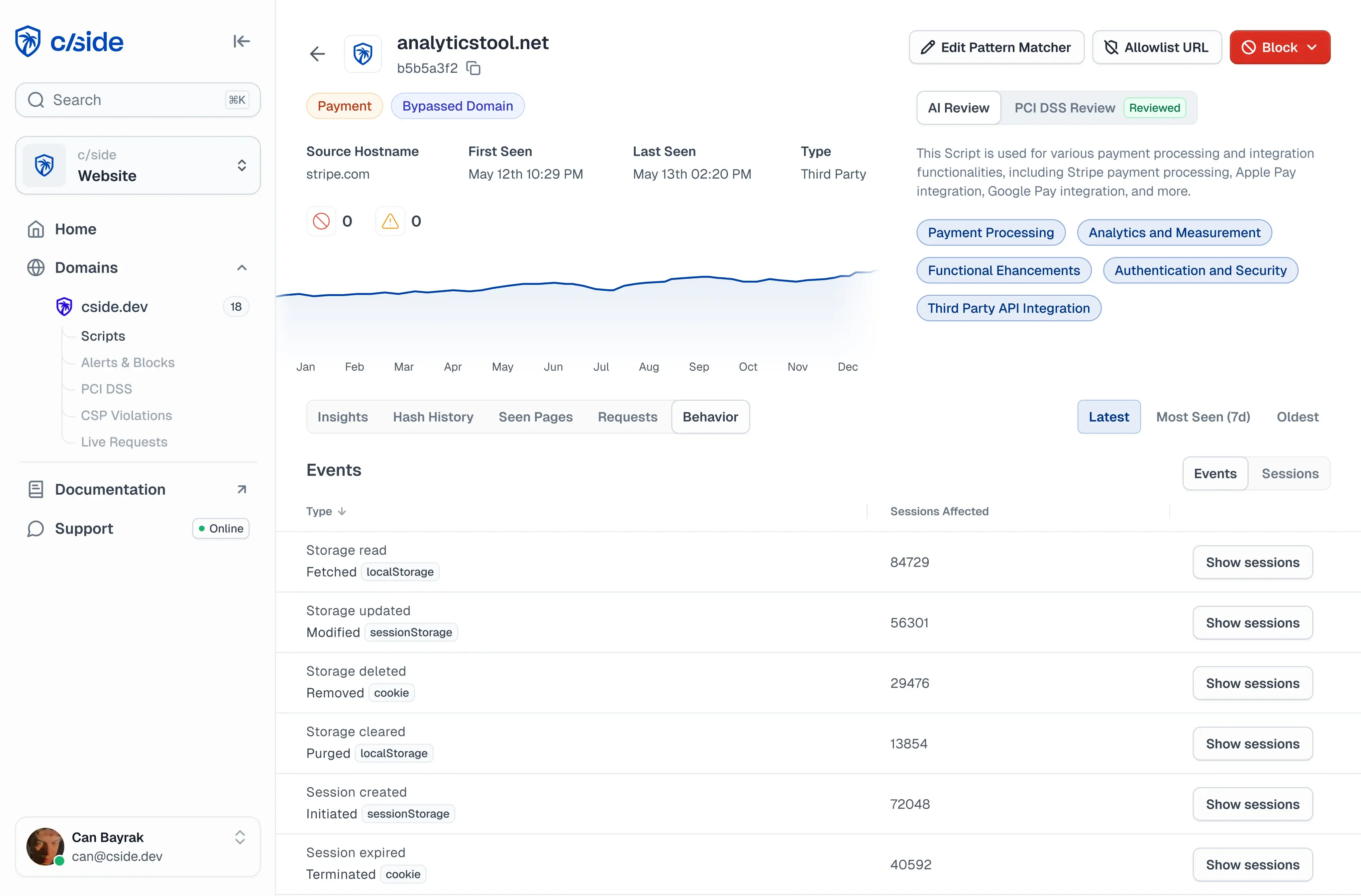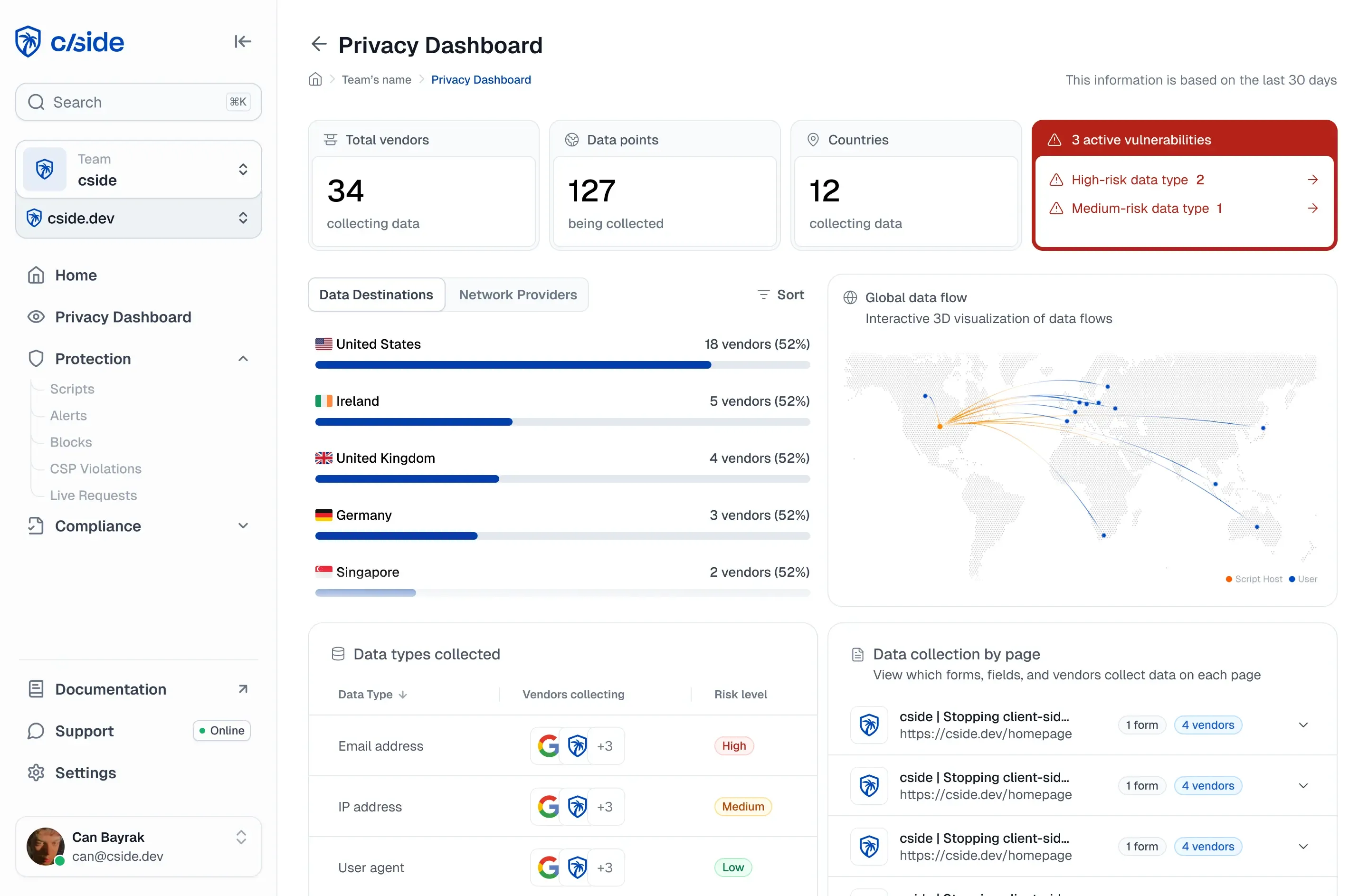Block Script Injections
Stop script injections and client-side XSS by controlling all script execution at the browser level.

Stop script injections and client-side XSS by controlling all script execution at the browser level.

Session Tokens stored in cookies, local storage, session storage, and other storage mechanisms can be accessed by any scripts on a webpage. Bad actors can extract authentication tokens to impersonate real users, bypassing MFA, and gain access to accounts.
Can lead to data breaches, violations of compliance (PCI DSS, GDPR, HIPAA), customer loss, and potential hefty fines.
Can make your own website be used to deliver malware, phishing UIs, or backdoors, resulting in damaged trust and potential legal consequences. An example of this was the CoinMarketCap attack where fake wallet connection popups tricked users into connection to malicious wallets. Read more about this topic
Client-side attacks happen between the user's browser and the server of the bad actor. This leaves no trace, making your security team blind. These incidents can go undetected for weeks or months with no data to investigate as to what actually happened.

Leading companies trust cside






















Built for security teams who need visibility inside the browser, cside delivers proven defense against modern client-side attacks while supporting PCI DSS and GDPR compliance. Your trusted partner for securing the last mile of the web.
 GDPR
GDPR  SOC 2
SOC 2  PCI DSS
PCI DSS FAQ
Frequently Asked Questions
The answer is yes. Cside is built to run safely in high-traffic, revenue-critical environments. We wrap scripts at runtime and monitor behavior. That means you can detect and block malicious activity without breaking legitimate functionality.
Cside is compatible with any web application or website. While e-commerce businesses use us for PCI DSS and skimming protection, we can also protect SaaS apps, fintech platforms, job boards, healthcare portals, and more. If your business handles sensitive data, then cside is also for you.
The answer is yes. By analyzing script behaviour in real-time, cside can detect and block DOM-based XSS and other client-side injections. Even when obfuscated or injected via trusted scripts, we can still flag suspicious actions.
No. Cside usually makes pages faster. We cache static scripts to improve performance, route dynamic scripts faster than via normal BGP routing. However, fully optimized scripts can get 7ms slower, but in reality this represents a fraction of the scripts we see.
